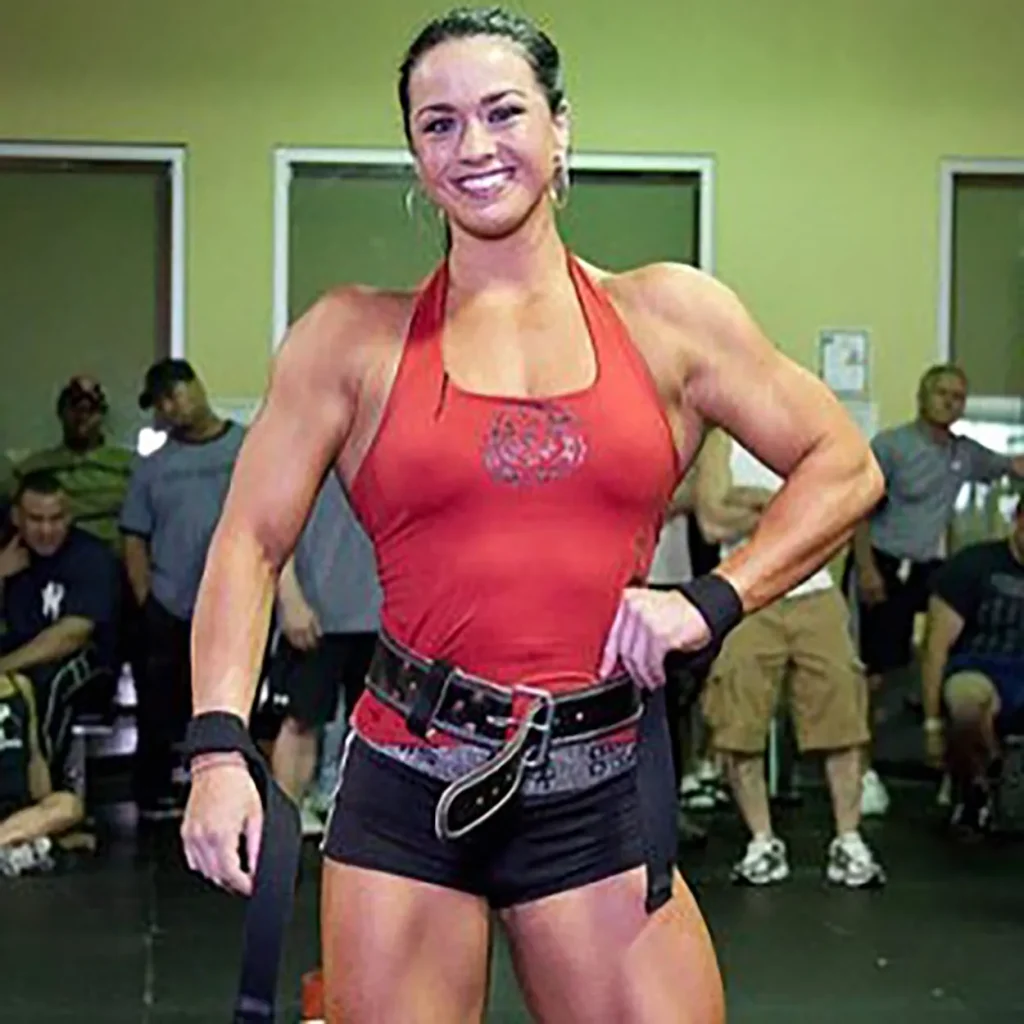Fitness Influencer Hayley McNeff’s Cause of Death Revealed — Officials Confirm Toxic Mix of Drugs Led to 37-Year-Old’s Sudden Passing
The sudden death of fitness influencer and bodybuilder Hayley McNeff has left her online community reeling, and now, the Massachusetts Office of Public Safety and Security has officially confirmed the cause. The 37-year-old social media personality, known for her vibrant fitness content and encouraging tone, died from acute intoxication caused by a lethal combination of heroin, fentanyl, 4-ANPP, cocaine, and norbuprenorphine. The statement, shared by Brenna Galvin, Deputy Director of Communications for the state’s Executive Office of Public Safety and Security, confirmed what many feared but hoped was not true — that McNeff’s death was connected to a tragic mix of powerful narcotics.

For those who followed Hayley’s journey online, the news has been heartbreaking. She was a familiar face in the health and fitness world, often sharing glimpses of her workouts, meal plans, and motivational messages meant to inspire her followers to build strength — not just physically, but mentally. She had built her platform around transformation and self-discipline, the kind that comes from years of dedication to the gym and to personal growth. That’s why news of her death hit so deeply — not only because she was admired for her athletic achievements, but because she represented resilience and motivation to many.
Hayley’s sudden passing earlier this year shocked the fitness community, which initially had little information about what had happened. When reports surfaced that her death was being investigated by state authorities, speculation began circulating online, though many fans urged compassion and privacy until facts were confirmed. The confirmation of multiple substances involved — including heroin and fentanyl, two of the deadliest drugs contributing to the U.S. opioid epidemic — has reignited broader conversations about addiction, mental health, and the hidden struggles that can persist even behind polished social media images.

Fentanyl in particular has been linked to a devastating wave of overdoses across the United States, often without the user’s knowledge of its presence in what they are consuming. Experts have repeatedly warned that even trace amounts of fentanyl can prove fatal, especially when mixed with other substances. The inclusion of 4-ANPP — a precursor chemical used in the illicit production of fentanyl — underscores how volatile and dangerous this combination can be.
For many, Hayley McNeff’s story has become a sobering reminder that even those who seem at their strongest can be fighting unseen battles. On social media, tributes have poured in from friends, fans, and fellow athletes. Some remembered her for her relentless energy and humor in her gym videos; others reflected on how much she motivated them through periods of self-doubt. “She was the type of person who made you feel like you could do anything,” one follower wrote. “This is just devastating.”
McNeff’s family has largely remained private, but close friends have described her as a deeply passionate person who poured herself into everything she did. While she projected confidence online, some of those who knew her personally have spoken about her struggles — including moments of anxiety and emotional turbulence that she occasionally referenced in posts. Though she didn’t often address personal pain directly, her captions sometimes hinted at a person who was working hard to keep going, no matter what life threw her way.

The tragedy of her death has also brought renewed attention to the growing mental health pressures that often accompany the influencer lifestyle. Many fitness influencers, despite projecting success and positivity, face intense scrutiny from followers, sponsors, and the public. The constant demand to maintain an image of perfection can take a toll — especially when personal or emotional struggles are involved. Studies in recent years have highlighted how creators in the health and beauty space are particularly vulnerable to burnout, anxiety, and feelings of isolation.
In Hayley’s case, her online persona was grounded in authenticity, but even that openness may not have been enough to shield her from the weight of private challenges. Her story echoes the painful reality that substance use disorders can affect anyone, regardless of appearance, career, or background. Experts emphasize that addiction is a disease, not a choice, and that the stigma around discussing it often prevents individuals from seeking help before it’s too late.
In Massachusetts — where Hayley lived and where her case was officially investigated — overdose deaths have continued to rise, particularly those involving fentanyl. The state’s Department of Public Health has reported a steady increase in fatalities linked to synthetic opioids over the last five years, mirroring national trends. The CDC notes that more than 70,000 people in the U.S. died from fentanyl-related overdoses in 2023 alone, many of whom were unaware that the drugs they were taking contained the substance.
The inclusion of cocaine in Hayley’s toxicology results also highlights the alarming trend of cross-contamination in the drug supply. Public health officials have found that recreational drugs like cocaine are increasingly being laced with fentanyl, dramatically increasing the risk of accidental overdose. Experts say that cases like McNeff’s are becoming heartbreakingly common, often involving individuals who were not habitual users but became victims of a deadly, unpredictable mix.
As news of her cause of death spread, social media reactions were swift, with many expressing sadness rather than judgment. Some followers urged others to use this moment to reflect on compassion and awareness rather than speculation. “Addiction doesn’t discriminate,” one comment read. “Hayley’s story is tragic, but hopefully it opens people’s eyes to what’s happening around us.”
Others in the fitness world used the moment to discuss how the culture of perfection and constant pressure can contribute to self-medication and unhealthy coping mechanisms. Fitness influencers often serve as pillars of motivation for others — a role that can feel impossible to maintain when they themselves are struggling. Behind the gym selfies and inspirational posts, many face the same insecurities and personal demons that plague their followers.
Hayley McNeff’s death has become part of a much larger conversation about the hidden tolls of public life in the digital age. The expectation to appear constantly motivated and composed — to be the example others look to — can be crushing. And when that pressure meets the accessibility of dangerous substances, the outcome can be tragic.
Friends of McNeff have described her as someone who was fiercely dedicated to helping others. She often encouraged followers to overcome fear and self-doubt, to “keep showing up” even when things got hard. That advice, which resonated with thousands online, feels especially poignant now. Those same friends have shared memories of her laughter, her warmth, and the way she could light up a room — reminders that she was far more than the headlines surrounding her death.
The fitness community, still mourning her loss, has also taken this moment to promote awareness around addiction recovery and harm reduction. Many have shared resources for substance abuse help lines, counseling, and community programs, urging anyone struggling not to suffer in silence. It’s a small but meaningful attempt to turn tragedy into advocacy — something that many of Hayley’s supporters believe she would have wanted.
The official confirmation of her cause of death, though painful, has also brought closure to a period of uncertainty. It replaces speculation with clarity, even as it raises deeper questions about how such a bright and disciplined individual found herself in such a deadly situation. For her followers, the truth underscores the fragility of life — and the importance of compassion for those who may be quietly fighting their own battles.
Hayley McNeff’s story is one of both inspiration and heartbreak — a reminder of how social media can both empower and isolate. Her influence reached far beyond her fitness posts; it was rooted in the energy and hope she offered others. In the end, her passing is a call to look beyond the filters, the hashtags, and the highlight reels — to remember that strength is not the absence of struggle, but the courage to keep going through it.
As the online fitness world continues to honor her memory, fans are holding on to the lessons she left behind. Her journey, though tragically cut short, continues to resonate as a powerful reminder that behind every image, there’s a human story — one that deserves empathy, understanding, and care.


